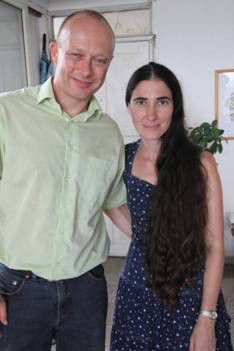- In recent years the topic of global ecology and global warming has been on the table. Unfortunately, no decisive results have been achieved, despite the number of meetings and countless hours devoted to the problem. It appears the solutions are not as simple as they appear in articles and books.
- To solve a complex problem it is essential to have a frank dialog, free of prejudice, between the parties involved. This was not the tone in the global meetings. Since its inception we have defined two opposing positions: the rich and developed countries and the poor and underdeveloped countries. The latter, aiming at all times to download all the blame on the first and also resolved to demand compensation.
- Let’s delve into this a little. It is true that developed countries have produced and produce more pollution, consuming more fuel and producing more products, but these products are used by all countries, developed and undeveloped. That is, the producer pollutes more and the receiver less, but if the receiver produced what it needed it would also pollute. Therefore, a major share of the pollution falls on them. The blame, as we see, is shared and responsibility for the deterioration falls to both.
- If both groups are responsible, and they have been throughout the history of mankind, measures to solve the problem must be implemented by both. Indemnifying either from the implementation of measures is as opportunistic as it is dishonest. In addition, there is no single measure, as some demagogues assert, dedicated as they are not to the real solution of the problems, but to using any platform to add fuel to the fire in their ideological confrontation with the so-called first world.
- In this absurd context they have raised all kinds of nonsense to change the system, asserting that coal and oil are the fuels of capitalism and the sun is the fuel of socialism. Gentlemen, more seriousness please. It is forgotten, on purpose, that the former socialist countries, with the former USSR at the forefront, were (and still are) some of the biggest polluters and destroyers of the environment, with their huge old industrial plants and reclamation of land and unlimited logging, without any environmental regulation. We only need look at the polluted Lake Baikal and the regions of Ukraine affected by the Chernobyl nuclear disaster. Also the recent oil spill in the Gulf of Mexico and the mercury in Hungary. As you see the phenomenon affects us all. If we want to solve the problem of global warming, we must discard the political opportunism and require the governments to act responsibility. This is the task of citizens and civil society in all countries.
December 2, 2010

 A few weeks ago, I called different ministries of the economic sphere asking for facts and figures. In a humiliating manner they told me that these issues were not my concern. “Trust Fidel and Raul, they always do the best for the country,” replied a technocrat in a lecturing tone.
A few weeks ago, I called different ministries of the economic sphere asking for facts and figures. In a humiliating manner they told me that these issues were not my concern. “Trust Fidel and Raul, they always do the best for the country,” replied a technocrat in a lecturing tone.
